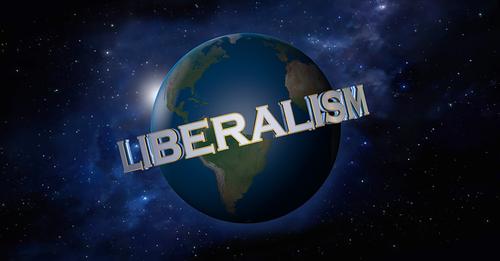Liberty Matters
Can We Be “Pessimistically Optimistic” About the Future?

I have enjoyed this conversation immensely, and I have learned tremendously not only from our discussion leader, Alberto Mingardi, but also from Giandomenica Becchio and Richard Wagner. Given the emphases by Mingardi on Pareto's political realism, Becchio on non-logical dynamics in the political setting, and Wagner on the open-endedness of Pareto's social theorizing, I wish to ask if there is any scope for hope implicit in Pareto? Drawing from Peter Boettke's article "Pessimistically Optimistic about the Future" (2016), I say there is indeed scope for pessimistic optimism in Pareto himself.
What do I mean by this? We have every reason to be pessimistic about the prospects for government growth in both scale and scope beyond the confines of what a classical-liberal vision of society would prescribe. As Mingardi argued in his last post, "[A] peculiarity of free societies seems to me to be that their economic success sometimes eats up their very freedom." Businesses that have succeeded in the private sector often then utilize sentiments to justify protection from the competitors to protect their existing rents. And, indeed, as Becchio eloquently stated, "a non-logical theory based on irrational feelings and emotions can be very persuasive and useful to generate forms of social integration which seem to work in the short run, yet they are dangerous in the long run because they decrease economic development and erode individual liberty." Non-logical dynamics in the political arena do bias expediency over principle, and for these reasons we must be realistic that economic reform rarely emerges from within the political setting itself.
Yet, given this underlying pessimism, can this also be the basis for optimism? This may seem odd at first, but taking our cue from Wagner that Pareto is an open-ended social theorist, we must remind ourselves that Pareto understood that political decision-making will always fail to fully anticipate the set of unintended consequences that emanate from policies that stifle the market process. This does not imply that entrepreneurs in the marketplace are better because they are perfect. Rather, there is scope for optimism if we realize what the implications of non-logical action in the political process and logical action in the market process are. From a process perspective, imperfections introduced into the marketplace by government regulation unintendedly introduce profit opportunities for entrepreneurs to capture what would have otherwise not existed. The ATM was an entrepreneurial response to circumvent bank anti-branching laws in the United States; the container ship emerged out of a profit opportunity to circumvent labor protection of the longshoremen; and Uber and Lyft, more recently, are now challenging the monopoly privileges held by taxicab companies in cities across the U.S. and Europe.
Therefore, while Pareto's own political realism would not have led him to the conclusion I am drawing here, Pareto's own general sociology does leave scope for optimism, I believe, and is evidenced by the robustness of the market process. Regulators are precluded from an institutional context of private property, and therefore residual claimancy, over the profit opportunities they unintendedly generate, and the entrepreneurial incentive and economic knowledge embodied in such profit opportunities will therefore be absent to regulators. This explains the appeal to derivations by regulators to justify the existence of regulation based on the residues of its beneficiaries. Therefore, proponents of intervention can only acquire and identify knowledge that is available to them in the political setting. That is, they will be alert to political knowledge that is consistent with preserving their rents, lobbying for new interventions to correct for the failure to foresee the undesirable consequences of prior interventions, namely, consequences that threaten the benefits derived from regulation. (See Wagner 1989: 51–57.) This indeed characterizes the non-logical dynamics of the political processes.
Market processes "fail" to achieve perfection, and government processes fail to mimic perfection. The absolute size and scale of government may inevitably grow, as Pareto realistically predicted. But given that individuals are residual claimants of their decision-making, both correct and incorrect, in the market process, such robustness in the market process implies that there is scope for growth and development to "outrun" the expansion of government itself. Entrepreneurs not only profit from correcting errors introduced by other market participants, but more importantly, they also profit from circumventing regulations that stifle the market process, and therefore they erode the rents accrued through government privilege. The non-logical dynamics of rent-seeking and regulatory capture cannot exist without fueling a logical, entrepreneurial response in the market process to whittle down the benefits accrued from government intervention.
Pareto may have been politically realistic about the political process itself, but that doesn't imply we should be cynical about the hope that markets can redeem us from the fate of socialism itself.
Copyright and Fair Use Statement
“Liberty Matters” is the copyright of Liberty Fund, Inc. This material is put on line to further the educational goals of Liberty Fund, Inc. These essays and responses may be quoted and otherwise used under “fair use” provisions for educational and academic purposes. To reprint these essays in course booklets requires the prior permission of Liberty Fund, Inc. Please contact oll@libertyfund.org if you have any questions.